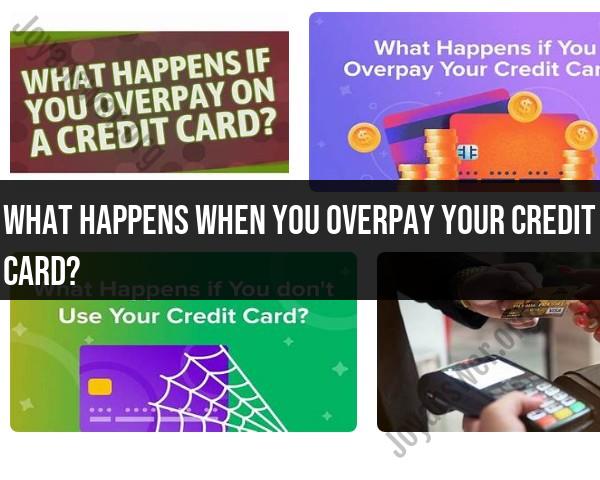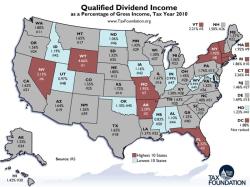What happens when you overpay your credit card?
Overpaying your credit card, while not necessarily a negative action, may lead to some consequences and considerations. Here are some effects and potential solutions:
Effects:
Positive Balance: If you overpay your credit card, you'll have a positive balance on your account. This means that the credit card issuer owes you money.
No Interest Earnings: Unlike when you carry a negative balance and owe interest, having a positive balance on your credit card doesn't typically result in the credit card company paying you interest.
Reduced Credit Utilization: Overpaying reduces your credit card utilization rate, which is the ratio of your credit card balances to your credit limits. A lower utilization rate can positively impact your credit score.
Solutions:
Request a Refund: Contact your credit card issuer and request a refund of the overpaid amount. Most credit card companies will issue a refund or transfer the excess amount to your bank account upon request.
Adjust Future Payments: If you prefer, you can leave the overpayment on your account, and it will be applied to future purchases. However, keep in mind that this may not be the most efficient use of your money, especially if you're not earning interest on the positive balance.
Check and Update Payment Methods: Ensure that you are using the correct payment method and amounts when making payments to avoid overpaying in the future. Double-check your payment details to prevent errors.
Automatic Payments: If you use automatic payments, review your settings to make sure they align with your intended payments. Adjust the automated payment amounts if necessary.
Monitor Your Account: Regularly monitor your credit card statements to catch any discrepancies or overpayments early. This allows you to address the issue promptly.
Understand Your Billing Cycle: Be aware of your credit card billing cycle and due dates to avoid making payments when they are not needed.
Use Other Payment Methods: If you're concerned about overpaying, consider using other payment methods like electronic funds transfer (EFT) or online banking, which may offer more control over the payment amount.
Remember that the specifics can vary by credit card issuer and their policies, so it's essential to check with your specific credit card company for guidance on handling overpayments.
Overpaying a credit card, also known as having a negative balance, means paying more than the minimum payment due on your credit card statement. This results in a credit balance, which essentially means the credit card company owes you money.
Consequences of Overpaying a Credit Card
No Direct Benefits: Unlike carrying a balance, which can accrue interest, overpaying your credit card doesn't directly benefit you. You won't earn rewards or improve your credit score by having a negative balance.
Potential for Fraud Alerts: Large overpayments can raise fraud flags with your credit card company, leading to account freezes or holds until the situation is clarified.
Reduced Access to Credit: If your negative balance exceeds your credit limit, it can temporarily reduce your available credit. This can be an issue if you rely on your credit card for emergencies or unexpected expenses.
Unnecessary Tie-Up of Funds: Overpaying ties up your money unnecessarily, which could be better used for other purposes, such as savings or investments.
Handling a Credit Card Overpayment
Monitor Your Account: Regularly check your credit card statements to ensure there are no discrepancies or overpayments.
Request a Refund: If you overpaid by a significant amount, consider requesting a refund from your credit card company. They are obligated to return the overpayment upon request.
Allow the Balance to Roll Over: If the overpayment is small, you can let it roll over to your next statement. Your available credit will reflect the negative balance, but it won't affect your credit score or interest charges.
Repercussions of Overpaying a Credit Card
There are no direct repercussions, such as penalties or interest charges, associated with overpaying a credit card. However, it's generally not advisable to overpay as it doesn't provide any real benefits and can potentially raise unnecessary concerns.
In summary, overpaying a credit card is generally not a recommended practice. It doesn't directly benefit you and can lead to potential inconveniences. Instead, focus on paying your credit card balance in full each month to avoid interest charges and maintain a positive credit history.












